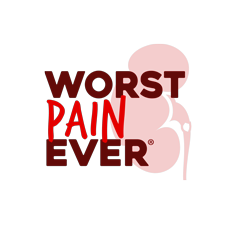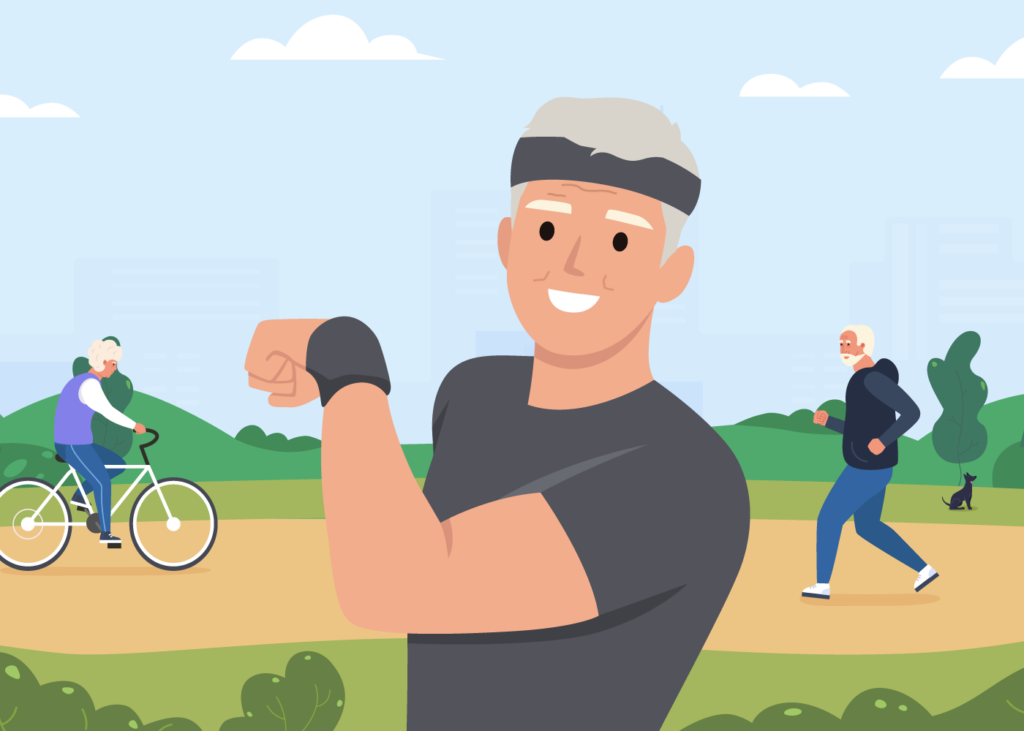Introduction
Thinking of taking supplements to meet your daily nutritional goals? You’re not alone! We teamed up with The Kidney Dietitian, Melanie Betz, to uncover the truth behind popular health supplements, and how they truly fair when it comes to kidney stone prevention.
I have calcium oxalate stones but I’m not a fan of dairy. Can I take calcium supplements instead?
It may sound counterintuitive, but having more calcium actually helps to prevent calcium oxalate stones. When you eat enough calcium, especially WITH your meals, , calcium and oxalate bind together in your intestine and results in less oxalate absorption and eventually less oxalate excreted in your urine1.
However, not all calcium is created equal! Calcium obtained from milk, and other dairy products, can help to lower your risk of stones, but the same cannot be said for calcium supplements1,2.
Whereas dietary patterns with enough calcium are associated with fewer kidney stones, some studies show a HIGHER risk of calcium stones with calcium supplements. Although calcium supplements will help reduce oxalate absorption, they are much more likely to raise urine calcium levels than natural sources of calcium. High urine calcium is the biggest cause of kidney stones, so this is a big deal!
Melanie: “Generally, stone formers should avoid calcium supplements. There are some cases of people with inflammatory bowel disease or who’ve undergone bariatric surgery where calcium supplements can be really helpful”
If you don’t like dairy or need an alternative calcium source, try out plant-based options like oat milk or coconut milk instead! If you have high urine oxalate, me mindful of the oxalate in almond, soy and cashew milk. Read more about oxalate in plant based milk substitutes!
Should I take magnesium supplements to prevent calcium-based stones?
Magnesium has been making waves for its numerous health benefits, including its role in stone prevention!
Its oxalate-binding property can help to prevent kidney stones in two separate ways. Firstly, when it is in your intestine, magnesium reduces the amount of oxalate that’s excreted in your urine4. Secondly, it prevents oxalate from binding with calcium to form stones in your urine4. In combination, these mechanisms create a win-win strategy!
Despite its fancy name, magnesium isn’t just found in supplements. In fact, it is hiding out in lots of nutritious foods like green leafy vegetables, nuts, seeds, and beans, which are associated with lower stone risks4. While magnesium cannot dissolve existing stones, it might be able to help prevent new stones from forming and existing stones from growing bigger4.
However, not all magnesium is made equal! In fact, the jury is still out on the benefits of magnesium supplements on kidney stones, suggesting that supplements might not achieve the same benefits as having magnesium-rich foods5.
Melanie: “It’s only a good idea to take a magnesium supplement if you have low urine, or blood, levels of magnesium and can’t get them up with food. But remember to consult your dietitian regarding the type and amount that’s suitable for you.”
I’ve heard that Vitamin B6 can help to prevent calcium oxalate stones. Is it true?
Many stone formers believe that loading up on Vitamin B6 can reduce the amount of oxalate the body makes. While vitamin B6 is important for keeping our immune and nervous systems healthy6, there is no association between having more vitamin B6 intake and a lower risk of kidney stones7. Your body will simply get rid of the excess vitamins. So, don’t fall for the myths!
Melanie: “I do not recommend vitamin B6 for most people with kidney stones. In fact, taking vitamin B6 will only help stone formers with primary hyperoxaluria – a very rare genetic condition!”
What are some supplements that I should DEFINITELY avoid?
Of all the supplements out there, these are the top 3 supplements to avoid:
- Vitamin C supplements
If you’re between the ages of 19 to 64, just 75-90mg of vitamin C daily does the trick8! You can easily reach this goal by enjoying 5 servings of fruits and vegetables every day.When you take supplements, you are introducing your liver to high doses of vitamin C. This triggers your liver to produce more oxalate, which can increase your risk of forming stones9.Just stick to having more fruit and veggies! Not only is it a tastier way to get in your daily dose of vitamin C , but you won’t have to worry about producing more oxalate in your urine.
- Protein supplements
Stay away from protein supplements, especially if they are derived from an animal source! They can beef up the levels of both calcium and oxalate in your urine, hiking up your chances of forming calcium oxalate stones10,11.Excess protein can also lower urine citrate.
To make matters worse, having too much protein can also lower your urine pH, making you prone to forming uric acid stones12. Since most people are eating more protein than they need, adding a protein supplement will just add unnecessary protein to your day.
Needless to say, protein supplements (and high protein diets) can create THE perfect storm for forming stones! Always ask your dietitian how much protein you need, and if you would benefit from any supplement – including protein supplements.
Conclusion
Nothing beats the nutrient power of a healthy diet. And remember, supplements are not a replacement for a nutrient-dense, healthy diet. The best approach to maintaining a stone-smart diet is to focus on having healthy and balanced meals – from which you can get all the vitamins you need. However, if you’re still keen on trying out any supplements, always reach out to your urologist or a registered dietitian first!
References:
- Taylor, E. N., & Curhan, G. C. (2013). Dietary Calcium from Dairy and Nondairy Sources, and Risk of Symptomatic Kidney Stones. The Journal of Urology, 190(4), 1255–1259. https://doi.org/10.1016/j.juro.2013.03.074
- Favus, M. J. (2011). The risk of kidney stone formation: the form of calcium matters. The American Journal of Clinical Nutrition, 94(1), 5–6. https://doi.org/10.3945/ajcn.111.018481
- Calcium. Office of Dietary Supplements. (n.d.). https://ods.od.nih.gov/factsheets/Calcium-HealthProfessional/#en14
- Shringi, S., Raker, C., & Tang, J. (2023). Dietary magnesium intake and kidney stone: The National Health and Nutrition Examination Survey 2011-2018. PubMed, 106(11), 20–25. https://pubmed.ncbi.nlm.nih.gov/38015780
- Fetner, C. D., Barilla, D. E., Townsend, J. C., & Pak, C. Y. (1978). Effects of Magnesium Oxide on the Crystallization of Calcium Salts in Urine in Patients with Recurrent Nephrolithiasis. The Journal of Urology, 120(4), 399–401. https://doi.org/10.1016/s0022-5347(17)57198-0
- Vitamin B6. Office of Dietary Supplements. (n.d.). https://ods.od.nih.gov/factsheets/VitaminB6-HealthProfessional/
- Ferraro, P. M., Taylor, E. N., Gambaro, G., & Curhan, G. C. (2017). Vitamin B6 intake and the risk of incident kidney stones. Urolithiasis, 46(3), 265–270. https://doi.org/10.1007/s00240-017-0999-5
- Vitamin C | Vitamin and minerals. NHS. (n.d.). https://www.nhs.uk/conditions/vitamins-and-minerals/vitamin-c/
- Crivelli, J. J., Mitchell, T., Knight, J., Wood, K., Assimos, D. G., Holmes, R. P., & Fargue, S. (2020). Contribution of dietary oxalate and oxalate precursors to urinary oxalate excretion. Nutrients, 13(1), 62. https://doi.org/10.3390/nu13010062
- Ginty, F. (2003). Dietary protein and bone health. Proceedings of the Nutrition Society, 62(4), 867–876. https://doi.org/10.1079/pns2003307
- Borghi, L., Meschi, T., Maggiore, U., & Prati, B. (2006). Dietary therapy in idiopathic nephrolithiasis. Nutrition Reviews, 64(7), 301–312. https://doi.org/10.1301/nr.2006.jul.301-312
- Remer, T., & Manz, F. (1995). Potential Renal Acid Load of Foods and its Influence on Urine pH. Journal of the American Dietetic Association, 95(7), 791–797. https://doi.org/10.1016/s0002-8223(95)00219-7





